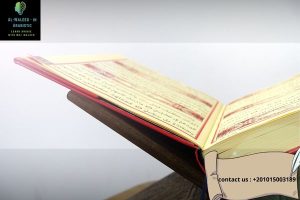What Language Is the Quran Written In? This is a common question asked by many Muslims and non-Muslims alike. The Quran, the holy book of Islam, is a source of guidance, education, and unity for millions of people around the world.
In this article, we will explain the language in which the Quran was written, the importance of language in the Quran, the history and compilation of the Quran, the characteristics and richness of the Arabic language, translations of the Quran, the importance of reading the Quran in Arabic, and finally, we will discuss why the Quran is in Arabic.
What Language Is the Quran Written In?
The Quran, the sacred scripture of Islam, stands as a beacon of guidance, a source of solace, and a testament to the profound wisdom of the Divine. Its verses, meticulously crafted in an intricate tapestry of language, have captivated the hearts and minds of countless individuals for centuries. Yet, beneath the surface of its eloquent prose lies a fundamental question that has intrigued scholars and laypeople alike: What language is the Quran written in?
Note: Anyone who wants to learn Arabic has to learn The foundation course before it knows writing and How to read also
The Arabic Tongue: A Vessel of Divine Expression
The answer, as simple as it may seem, holds profound significance: the Quran is written in Arabic. This seemingly straightforward response belies the intricate relationship between the language and the divine message it conveys. Arabic, in its purest form, the language of the Quraysh tribe among whom Prophet Muhammad صلى الله عليه وسلم was born, was chosen as the medium through which the Quran’s verses would descend upon humanity.
We would like to tell you that if you would like to indulge in Islamic studies and many questions, you can click and browse Our ARABIC LANGUAGE COURSE Now
A Language of Clarity and Precision
The selection of Arabic for the Quran was not a mere coincidence. Arabic, with its rich vocabulary, intricate grammatical structure, and nuanced expressions, was deemed the most suitable vessel for carrying the weight of divine revelation. Its clarity and precision ensured that the Quran’s message would be conveyed with utmost accuracy, preserving the integrity of its divine essence.
A Language of Beauty and Eloquence
Beyond its clarity, Arabic possesses an inherent beauty and elegance that lends itself perfectly to the Quran’s profound messages. The language’s rhythmic cadence, its evocative imagery, and its ability to stir deep emotions within the listener make it an ideal medium for conveying the spiritual truths enshrined in the Quran.
A Language of Enduring Legacy
The choice of Arabic also served to ensure the Quran’s enduring legacy. Arabic, a language with a rich literary and linguistic heritage, has stood the test of time, remaining largely unchanged over centuries. This linguistic stability has safeguarded the Quran from the ravages of linguistic drift, ensuring that its message remains unaltered and accessible to generations to come.
History and Compilation of the Quran

A Journey Through History and Compilation
The Quran, a cornerstone of Islam and a wellspring of guidance for millions holds a unique place in history. To fully appreciate its significance, we must delve into its fascinating journey – a story of revelation, preservation, and enduring legacy.
Muslims believe the Quran to be the literal word of Allah, revealed piece by piece to Prophet Muhammad (PBUH) through the Angel Gabriel over 23 years. During this time, the Prophet’s devoted companions served as living repositories, memorizing and reciting these divine verses as they were received. Additionally, these verses were inscribed upon various materials – palm leaves, animal skins, and parchments – scattered fragments of a soon-to-be unified whole.
The Prophet’s passing in 632 CE marked a critical turning point. To prevent these scattered verses from being lost or altered, a monumental task of preservation began. Under the wise leadership of Caliph Abu Bakr, a close confidante of the Prophet, a meticulous effort was undertaken. All available written fragments were meticulously collected and collated into an official, unified copy.
This painstaking process continued under the caliphate of Uthman ibn Affan, roughly two decades later. Recognizing the potential for variations as Islam spread geographically, Caliph Uthman embarked on a project to create standardized copies. These official copies were then distributed throughout the burgeoning Islamic empire, ensuring the Quran’s message remained uniform and uncorrupted.
Since this pivotal moment, the Quran’s content and language have remained remarkably stable. It continues to exist in its original Arabic form, with no alterations or translations ever being considered equal to the divine revelation.
Today, Muslims worldwide hold the Quran in the highest esteem. It’s not just a religious text; it’s a portal to the past, offering invaluable insights into the history and cultural practices of the era it emerged from. By understanding the remarkable journey of this sacred text, we gain a deeper appreciation for its profound impact on individuals, societies, and the course of human history.
The Arabic Language and Its Richness

What Language Is the Quran Written In? The answer, both simple and profound, is Arabic. This rich and vibrant language, with its history stretching back millennia, has not only shaped a culture but also served as the chosen vessel for the divine message enshrined in the Quran.
A Wellspring of Richness and Expression
Arabic is renowned for its richness and beauty. As a Semitic language, it shares ancestry with Hebrew and Aramaic, yet carves its unique path. Its vast vocabulary allows for nuanced expressions, encompassing a spectrum of concepts and emotions that may not have direct translations in other languages. This depth and precision make it an ideal medium for conveying the profound messages of the Quran.
Arabic, with its intricate grammar and expressive nature, ensures the Quran’s message is delivered with utmost clarity and accuracy. Even the subtlest nuances of the divine word are preserved, safeguarding the integrity of the text for generations to come.
The Art of Arabic Calligraphy
Arabic’s influence extends far beyond spoken language. The art of Arabic calligraphy elevates the written word to a visual masterpiece. Elegant curves and intricate designs transform letters into breathtaking works of art. Calligraphers dedicate years honing their craft, ensuring that both meaning and beauty are conveyed in each stroke.
The Power of Arabic Poetry
The rich tapestry of the Arabic language is further embellished by its vibrant poetic tradition. Renowned poets like Al-Mutanabbi and Abu Nuwas stand as testaments to the expressive power of Arabic verse. Their works have not only shaped Arab culture but also serve as a reminder of the language’s ability to evoke deep emotions and inspire artistic expression.
Arabic, with its rich vocabulary, intricate grammar, and artistic traditions, provides a perfect vessel for the Quran’s timeless message. The language’s beauty and expressive nature not only enhance the understanding of the divine word but also serve as a cornerstone of Arab identity and culture. As Arabic continues to evolve and adapt, its legacy as a language of beauty, precision, and profound expression remains secure.
I think this time for TEACH ME HOW TO SPEAK ARABIC Take a look
Translations of the Quran
The Significance of Quran Translations
While the Quran, the sacred text of Islam, stands as a cornerstone of faith, its language, Arabic, can be a barrier for those who don’t possess fluency. This is where translations come into play, acting as a vital bridge for countless individuals seeking to understand Islam’s teachings.
What Language Is the Quran Written In? The answer, of course, is Arabic. This rich and intricate language, with its unique grammar and vast vocabulary, was chosen as the vessel for the divine revelation.
Accessibility and Understanding
With the global spread of Islam, translations have become essential in making the Quran accessible to people from diverse linguistic backgrounds. Numerous translations exist, ranging from widely spoken languages like English and French to those specific to Muslim communities like Urdu and Malay. These translations strive to convey the meaning of the Quran’s verses with accuracy, allowing non-Arabic speakers to engage with the core message of Islam.
Challenges and Considerations in Translation
However, translating a text as complex and nuanced as the Quran presents a unique set of challenges. What Language Is the Quran Written In? Arabic. While conveying the meaning, translations may struggle to capture the full beauty and eloquence inherent in the original Arabic. Differences in syntax and grammar between Arabic and other languages can lead to the loss of subtle nuances or the inability to find direct equivalents for specific concepts. Additionally, each translator brings their own understanding and interpretations to the table, resulting in slight variations in emphasis or phrasing across different translations.
A Tool for Intercultural Understanding
Despite these challenges, translations play a vital role in fostering intercultural understanding. Widespread availability allows non-Arabic speakers to engage with the Quran, leading to a deeper appreciation of Islam and its core values. Translations serve as a starting point for individuals to learn about Islam’s principles and bridge the gap between cultures and languages.
The Importance of Arabic Language
While translations offer valuable access, it’s important to remember that they are not a substitute for learning Arabic. What Language Is the Quran Written In? Arabic, and the Quran itself (Quran 12:2) emphasizes its revelation in clear Arabic for those who understand. Learning Arabic can provide a more profound understanding of the text and a deeper connection with its intricacies and beauty.
In conclusion, Quran translations serve as a crucial bridge for non-Arabic speakers, allowing them to access and understand Islam’s core teachings. While acknowledging the limitations of translation, we recognize their significance in promoting intercultural understanding and spreading the message of Islam globally. However, the pursuit of a deeper connection with the Quran ultimately leads to a desire to learn Arabic, the language in which this divine revelation was originally revealed.
Read More: WHAT IS THE BEST WAY TO LEARN ARABIC VOCABULARY
Importance of Reading the Quran in Arabic:
The Significance of Reading the Quran in Arabic
For Muslims worldwide, the Quran stands as a beacon of guidance, a source of spiritual nourishment, and a testament to God’s divine revelation. While translations offer accessibility, there is a profound significance to reading the Quran in its original Arabic tongue.
Arabic as the Language of Divine Expression
The Quran, the literal word of God as revealed to Prophet Muhammad (PBUH), was conveyed in Arabic, a language meticulously chosen for its clarity, precision, and ability to convey the profound truths of Islam. Arabic’s intricate grammatical structure, nuanced vocabulary, and rhythmic cadence ensure that the Quran’s message is delivered with utmost accuracy, preserving the integrity of its divine essence.
Arabic’s Unique Expressive Power
Reading the Quran in Arabic allows one to delve into the depths of its meaning, grasping the subtle nuances and layers of interpretation that may be lost in translation. Arabic’s rich vocabulary, with its intricate shades of meaning, enables a more precise understanding of the Quran’s message, revealing the profound insights it holds.
Preserving the Beauty and Miracle of the Quran
The Quran is not merely a collection of words; it is a symphony of language, infused with poetic beauty and rhythmic eloquence. Reading the Quran in Arabic allows one to appreciate the inherent beauty of the text, the way words flow and intertwine, creating a tapestry of linguistic artistry. This aesthetic dimension complements the Quran’s profound message, enhancing its spiritual impact.
Connecting with the Legacy of Revelation
Reading the Quran in Arabic connects one to the rich legacy of Islamic scholarship and tradition. Over centuries, countless scholars and sages have dedicated themselves to studying and interpreting the Quran in its original language, producing a vast body of knowledge that continues to enrich our understanding of the text.
A Journey of Personal Growth and Spiritual Enrichment
The effort to learn and read the Quran in Arabic can be a transformative experience, fostering personal growth and spiritual enrichment. It requires dedication, perseverance, and a willingness to engage with the language on its own terms. As one’s proficiency in Arabic grows, so does their ability to connect with the Quran on a deeper level, leading to a more profound understanding of its message and a stronger connection to faith.
Call :
If you are interested in learning more about the Quran, or if you would like to learn Quran, there are many resources available online and in your community. We would like you can take your first step and browse our COURSES Now
Conclusion
A. Recap of the importance of Arabic in the Quran
The Quran’s language, Arabic, is central to its understanding and interpretation. Knowledge of Arabic enhances one’s ability to grasp the Quran’s profound message and appreciate its literary and spiritual significance.
B. Final thoughts on understanding the Quran’s language
While translations offer valuable access to the Quran for non-Arabic speakers, they cannot fully capture the depth and beauty of the original text. Therefore, learning Arabic remains a priority for those seeking a comprehensive understanding of the Quran.
Before you go want to inform you that we are the best Arabic language Academy that applies high-quality education
FAQs
- Can I understand the Quran without knowing Arabic? While translations provide a general understanding, knowing Arabic is crucial for a deeper comprehension of the Quran’s nuances and intricacies.
- Are all translations of the Quran accurate? Translations vary in their accuracy and interpretation. It’s essential to consult reputable translations and scholarly commentary for a comprehensive understanding.
- Why is Arabic considered the language of the Quran? Arabic is the language in which the Quran was revealed to Prophet Muhammad, making it integral to Islamic tradition and practice.
- Is it necessary to memorize the Quran in Arabic? While memorization is highly encouraged in Islamic tradition, it is not obligatory. However, reciting the Quran in Arabic holds spiritual merit and reward.
- Are there any resources available for learning Quranic Arabic? Yes, numerous resources, including language courses, books, and online tutorials, are available for learning Quranic Arabic.



